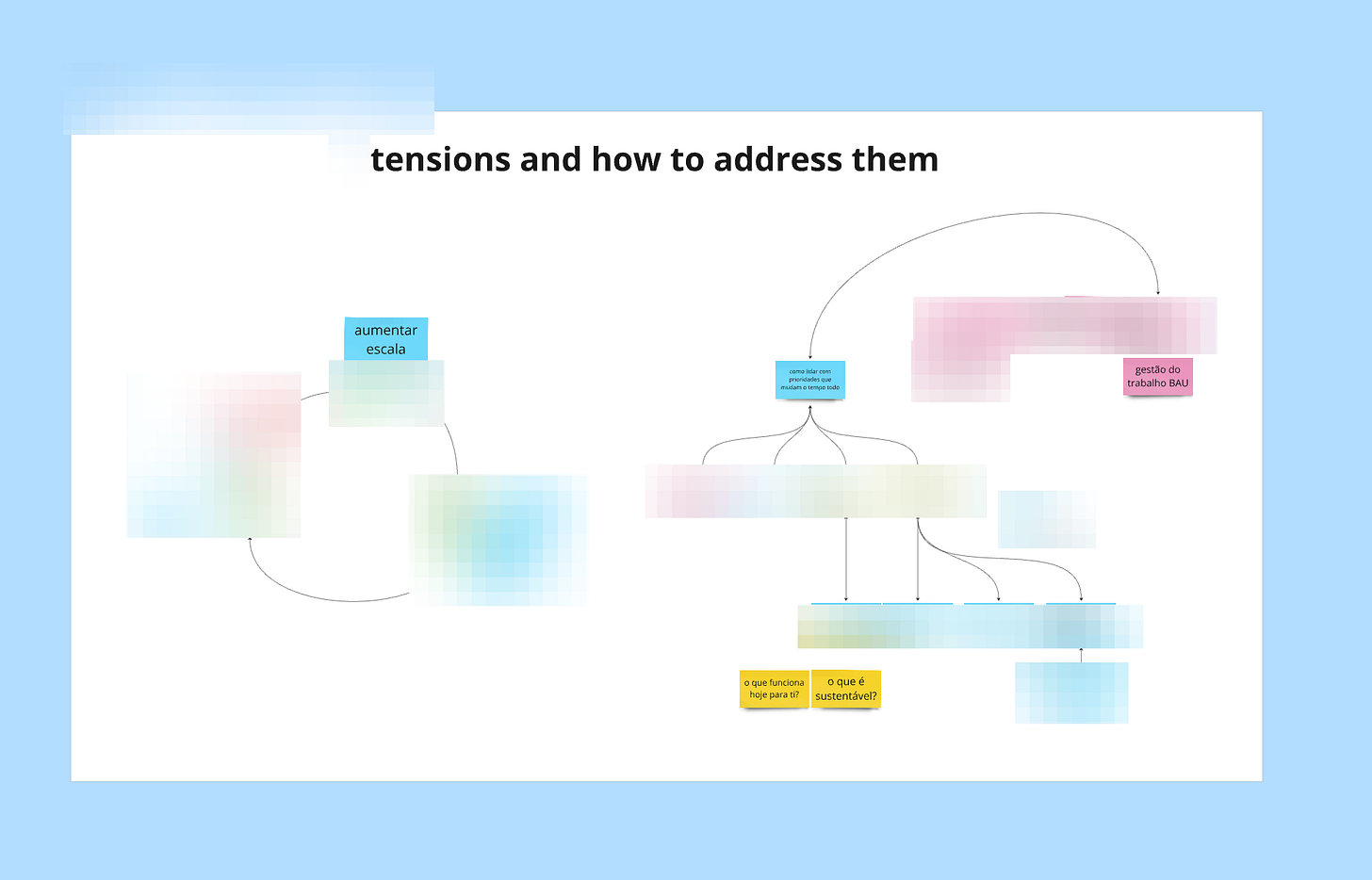What it looks like when a client "gets it"
Spoiler alert: Clients "get it" faster when they see you do it.
Nothing is more energizing than a client that “gets it.”
They see the value of what you do, even before you do it for them!
A client that “gets it” understands what you can do for them, how it helps them solve a problem, and how it could help others like them.
It's that moment when you see their eyebrows arch up and their posture change (often this means a sudden relaxation of the upper body, sitting back in their chairs, tension relieved); you know they got it.
And when they get it, you get them.
Get it? 1
But now, seriously.
Getting clients to understand what we do depends on several factors:
How well we know our customers
How we connect that with our own services
How we position ourselves
The language we use
The pictures we use
Etc.
All these matter, of course.
The difficult part for the subject matter expert is weaving all this together.
A while back, I had a transforming experience of seeing the client suddenly connect all the dots during a workshop session.
This changed how I talk about my work and made it extremely clear what my advantage is.
I want everyone to have the same rush (and I believe that workshops are a faster way to get there), so I'm sharing it here.
Try to picture yourself in my shoes and see how you feel.
This project started off on a bit of a flimsy note.
I had been referred to this client mostly for my "generic sense-making ability." Someone told them I could help, even if their specific challenge was still a bit undefined.
The agency owner I was talking to was brilliant and very driven.
He had little tolerance for vagueness but was also dealing with the usual issues his agency faced: managing people, securing pipeline, scaling the business, and pursuing strategic internal projects.
I was sweating, trying to nail down exactly what we would be doing together, given that there were so many possible avenues.
As we talked about it over Zoom, the unease was growing.
They were frustrated by the feeling of knowing what was plaguing them but not finding the words to define it.
I was frustrated that I could not fully frame the issue ahead of us.
Have you ever had such a start for a project?
You know you have what it takes; they know they are not crazy; and both of you are struggling to find a solid foundation to start?
This was like that.
And then, I opened a whiteboard app - a place where we could work together, drawing boxes and arrows, putting up post-its, regrouping them, and finding the common language to talk about the challenges this agency was facing.
We didn't schedule anything or prepare any materials. I just opened a new tab and sent them the link.
As we spoke, I wrote things down.
As we honed in on what mattered most, I grouped the relevant bits.
As we decided, I marked what we chose to work on.
In 50 minutes, we moved from chaos and unease ("Is João the right guy for the job?") toward clarity and enthusiasm ("This João dude understands my problem!").
I know this is what went through their minds because I later asked them.
The Moment of Truth for this client was when I shifted from a purely conversational approach into a co-creation approach.
This was possible because I was familiar with workshop dynamics and tools and leaned into them in a moment of uncertainty.
Many words have been written about what makes workshops effective for these sorts of tasks. I'm not too interested in discussing that now.
But I remember that moment when I snatched my client's trust from the jaws of "thank you very much, we will think about it and then ghost you”.
All it took was getting into Workshop Mode.
If you sell complex expertise - the kind that is very context-dependent and requires a lot of common ground to even begin to be deployed - I think this is useful for you.
Workshops can absolutely help your clients "get it."
A Piece of Actionable Advice
Go back to your last couple of satisfied clients and ask them:
"At what point during our work together did you become convinced that you'd made the right choice in hiring me?"
Take what they tell you and lean harder into it.
This is a moment of truth.
I mean it, ask them this.
Tell them to reply with a voice memo if it makes it easier.
But ask them.
That Thing You've told me you need
Based on feedback from my kindest readers2 , I'm shifting the product to something more specific.
I will help you create great Taster Workshops.3
This is what I mean:
Shorter workshops
Workshops that let you show, not tell
Workshops that take you out of the Explanation Trap
Workshops that connect with your other offers and help you sell more
If this is something you're interested in, just reply to this email, and we'll take it from there.
I must apologize, I suffer from “cannotavoidapun-itis”
You could be promoted to a "kindest reader" if you reply to this email and tell me you're in for a 30-minute "no-sales call".
Name might change, but that's the idea.




